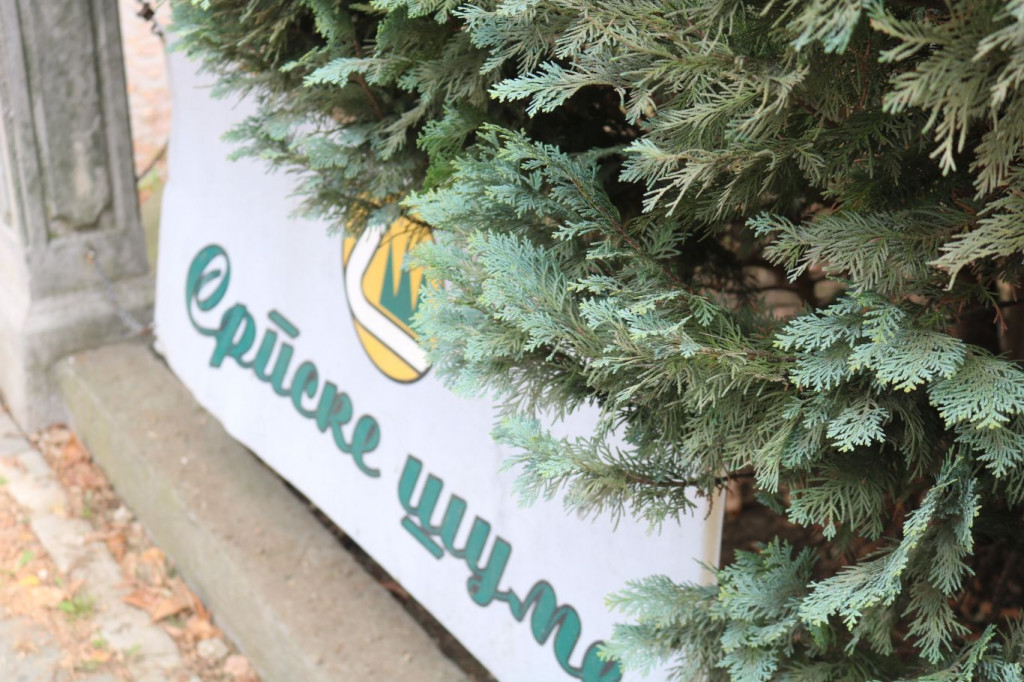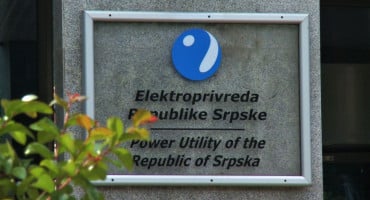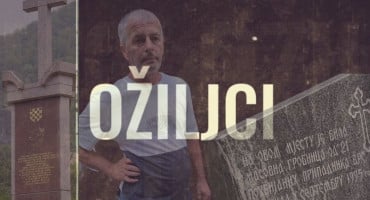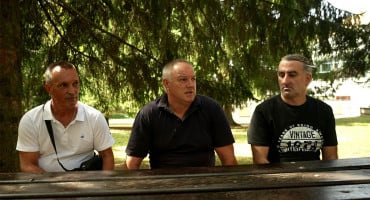Million KM worth scam of Egyptian and director in “Šume Srpske”

“Šume Srpske” lost one million KM of claims from the company “FL Stakorina” Čajniče, owned by an Egyptian citizen, after it went bankrupt. Due to that, no one in this public company was responsible, because the then acting director of the “Vučevica”, against whom disciplinary proceedings were initiated, retired.
Cooperation between “Šuma” and “FL Stakorina” starts in 2017, and although the company did not settle its obligations on time, “Šume” concluded two contracts with them in early 2018 with deferred payment worth up to 60 days worth 1.14 million KM without VAT, and several smaller contracts with advance payment have been signed.
Disciplinary proceedings against the former director have been suspended because he has retired
Already at the beginning of May 2019, at the suggestion of the owner and legal representative Mohamed Fekry Atti Elazab, this company went bankrupt, which ended at the beginning of last year, and due to the lack of bankrupt estate, “Šume” was left without a million KM.
In “Šume Srpske” they told CAPITAL that a bill of exchange was obtained from the buyer as a guarantee of payment under the contracts, but that the bank returned it upon activation with the explanation that there is no possibility of collection because bankruptcy proceedings were initiated against “FL Stakorina”.
“Due to omissions in work and untimely reaction, which led to the aforementioned claim, a disciplinary procedure was initiated in 2018, against the then acting director of the forest estate ‘Vucevica’ Neđo Mašić. He was dismissed from the position of acting director, and at the beginning of 2019, a hearing was held regarding the violation of work obligations. Date 18.03.2019. year, by the decision of the then director of the public company, the procedure was suspended because the worker on 16.03. “met the conditions for retirement, and the imposition of any measure by the company at that time was pointless,” said in response to “Šume”.
They do not explain in “Šume” what prevented them from reporting this case to the police and filing criminal charges. Retirement closed the case for them.
The lawyers we spoke with confirmed that in this and similar cases, the issue of criminal liability of those responsible for unpaid debts should be raised. The RS Criminal Code stipulates that a responsible person will be sentenced to six months to five years in prison and a fine, who, with the desire to obtain illegal property gain for their own or another legal entity, puts the legal entity in a more favourable position when obtaining funds or other benefits that would not be recognized to that legal entity under the existing regulations.
This penalty is also provided if the responsible person in other ways violates the law or business rules in relation to the disposal, use and management of property.
Audit: Business with ‘FL Stakorina’ is not supervised
The Main Audit Office of the RS Public Sector also warned about the shortcomings in the business relationship between “Šuma” and “FL Stakorina”, which determined that the business with this customer was not supervised, which resulted in a debt that was not collected.
The business with the customer ‘FL Stakorina’, which started in 2017, has not been monitored since the signing of the contract, delivery of wood assortments, monitoring the delivery dynamics, deadlines for collection of receivables and use of payment security instruments, in other words, it was not in accordance with the Decision sales of forest wood assortments, nor was it in accordance with the concluded contracts, which has the consequence that there are uncollected receivables”, it is stated in the “Šuma” audit report.
The auditors stated that, due to omissions in the business with the customer ‘FL Stakorina’, as well as with other customers, of which there is a significant number, the business of “Šuma” was not in accordance with the agreement on the use of forests and forest land owned by RS, including maintenance obligation, which was concluded with the Ministry of Agriculture, Forestry and Water Management, and that during the audit it was not documented that procedures for uncollected receivables and placements were initiated in a timely manner.
It is also interesting that “Šume” did not disclose in the notes to the financial report information on the completed bankruptcy proceedings against this company, although they were known to them at the time of writing the report.
This is just one of many examples where “Šume” lost millions of KM.
Suspicious 10.5 million KM receivables
The total claims of the public company at the end of 2020 amounted to 27.2 million KM, and out of that amount, as much as 10.5 million KM was suspicious and disputable.
“At the end of 2020, 908,235 KM of receivables were written off, which are mostly older than ten years. All organizational parts were obliged to file lawsuits for all suspicious and disputable claims,” they said in “Šume”.
Accumulation of debts, as they say in “Šume”, was prevented by the introduction of electronic records.
“If, however, there is a violation of laws and bylaws, proceedings will be initiated against all those responsible to determine responsibility, but also criminal charges will be filed by the company,” they say in “Šume”.
The largest debtors of uncollectable debts
The biggest debtors of “Šuma” whose claims are uncollectible at the end of 2020 were “FL Stakorina” Čajniče with a debt of 1.1 million KM, “Drvolik” Rogatica (739,014 KM), “Orah-Stakorina” Čajniče (295,007 KM), “Nova Forma” Šamac (247,060 KM), “Danprom-građa” Prijedor (221,646 KM), “Aqua life” Sokolac (204,260 KM), “Crvena stijena” Pale (167,893 KM), “Romanija wood” Sokolac (105,683 KM).
The RS Ministry of Agriculture, Forestry and Water Management was not in the mood to discuss the issue.
Assistant Minister of Forestry and Hunting Goran Zubić told CAPITAL that in the previous period, buyers with a higher degree of final production were allowed to take wood on deferred payment for up to 90 days and that because of that certain debts were created.
“Such things are not happening now because more or less all customers have switched to advance payment because market conditions allow it,” Zubić said.
However, he also did not have information on whether and how many directors were responsible for the accumulation of debts that were never collected.
Pavlović: Whoever works honestly in the public sector, very quickly realizes that he is crazy
The bankruptcy manager of “FL Stakorina” Slavko Ilić pointed out for CAPITAL that the company had only about 200,000 KM of movable property and that the creditors could not be settled with that.
“The company got wood from ‘Šume’, but I don't know how it got it, but the debt remained. FL Stakorina also exported to Arab countries and failed to collect the debt of 1.5 million euros,” said Ilić.
Apart from “Šume”, this company owes millions of KM to other creditors, most of which to the Export Credit Agency of BiH 2.2 million KM.
Economic analyst Zoran Pavlović says for CAPITAL that people who are inclined to accept bribes decide on defining the conditions and quality of goods that are delivered, and that they define better quality goods as lower quality.
“At one point, the condition for withdrawal, and non-payment, trees were bank guarantees. If you withdraw the goods and do not pay, the forestry has the right to collect from the bank guarantee. Why was it given up? Probably because someone was knowingly allowed to take the goods on deferred payment, with the concept that they will never pay for it, and that everything that is achieved in that way will probably be shared”, Pavlović said.
He added that whoever works honestly in the public sector will quickly realize that he is “crazy and unfit for the job he does, because there are many more people present who do not work honestly and who pursue personal interests at the expense of social goods.”
He says that mechanisms for good business in the public sector exist, citing as an example housing loans from the RS Investment and Development Bank (RBI), which are completely transparent, but that the problem is that such examples are rare.
By the way, “Šume Srpske” has been frauding financial reports for years, and no one in this company was responsible for that either.
The Main Audit Office of the RS Public Sector determined that in 2020, this company showed non-existent profit instead of a loss worth millions.
Due to numerous irregularities, the public company received a qualified opinion from the auditors on the financial statements and a negative opinion on compliance.





